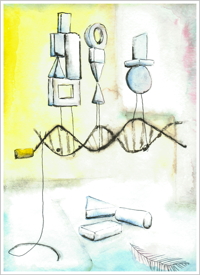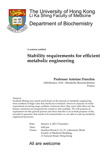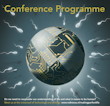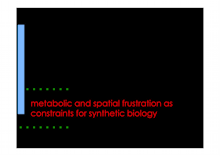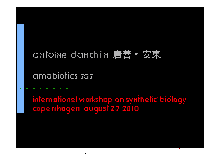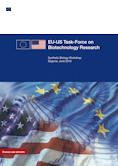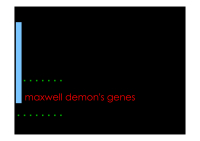
|
| home |
| who we are |
| news |
| research |
| values |
| publication |
LECTURES, DEBATES, TRAINING |
|||
|
Working
Seminar Stanislas Noria 3 december 2013 Genome L ectures 2 december 2013 Syn Bio Summer Course Institut de Physique Théorique International Workshop: Around
viability boundaries 13 december 2012 The
University of Hong Kong Hong Kong, SAR Hong Kong, China Working
Seminar in Conceptual Biology (Stanislas Noria)
Hong Kong, SAR Hong Kong, China
« Compartmentalisation of information in biology » Internationale Vorlesungsreihe —
Synthetische Biologie Bremen, Germany
« (Re)constructing life: we should not forget the chassis »
COST Workshop on Whitefly Metagenomics – Synthetic Biology & Symbiosis
Valencia, Spain Functional Analysis for Synthetic Biology. Metabolic Frustration is Driving Compartmentalisation Frontiers in Systems Biology II
Hong Kong, SAR Hong Kong, China Ageing vs senescence: the fate of the cell factory Synthetic Biology (SB) puts together two separate entities, a program and a chassis. The majority of SB-related work deals with the program, not the chassis. We will deal with the chassis and ask the quetion: will scaling up synthetic processes be possible, and to what extent? Indeed, scaling up implies reproduction of the chassis, i.e. making similar copies. As in all systems this implies progressive ageing. Living cells have a knack to make that ageing differs from senescence. We will explore how this is possible, and why this has important consequences in terms of SB. Working Seminar in Conceptual Biology Department of Mathematics Hong Kong, SAR Hong Kong , China Update of antifragility: a concept used in banking that may be relevant to (synthetic) biology Bageco11 Kerkyra, Greece Antifragility: a concept used in banking that may be relevant to (synthetic) biology
Institut Curie, retreat Avignon Antifragility: a concept used in banking that may be relevant to (synthetic) biology
Shenzhen Functional analysis in genome sequence
annotation Croucher Advanced Study Institute Faculty of Medicine HKU Synthetic biology and aging Hong Kong University of Science and Technology Biochemistry and Cell Biology Antifragility; a novel view of finances that may be used in modelling metabolism Li Ka Shing Faculty of Medicine Department of Biochemistry Stability requirements for efficient metabolic engineering
European Technology Assessment Group Public debate Programme
LIX École Polytechnique Reproduction vs replication: a role for Maxwell's demon TARPOL summer school on synthetic biology Metabolic and spatial frustration as contraints for synthetic biology
International workshop on synthetic biology Interfacing biology, technology and society Molecular traffic jams and the reproduction vs replication dilemma
The US-EC task force in biotechnology research Exploratory workshop: Toward standards in synthetic biology Molecular traffic jams and emergence of metabolic and regulatory conflicts
The Third Schmid Training Course International training course The body plan, an information trapped by Maxwell's demons? Belgian Society for Microbiology Interfacing Systems Biology and Synthetic Biology 25 march 2010
|
|
science and
society public debates |
